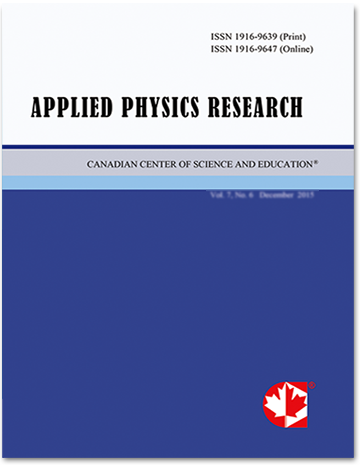Characterization of Dark Energy and Derivation of Hubble’s Constant Using Harmonic Quintessence
- Andrew Worsley
- James F. Peters
- Joseph Worsley
Abstract
In this paper, using harmonic quintessence, it is shown that the fundamental parameterization of dark energy can be determined using Planck’s constant. This allows the derivation of the mass density, and in turn we obtain the energy density of dark energy. This characterization of dark energy also allows the derivation of an averaged value of Hubble’s constant, which is in keeping with results from the Planck telescope. It is also possible to confirm the vacuum electric permittivity, magnetic permeability and the field equations for dark energy and corroborate the continued expansion of the Universe. This establishes the fundamental element of the Universe, derived from Planck’s constant, as Harmonic Quintessence.
- Full Text:
 PDF
PDF
- DOI:10.5539/apr.v14n2p29
Journal Metrics
Google-based Impact Factor (2017): 3.90
h-index (November 2017): 17
i10-index (November 2017): 33
h5-index (November 2017): 12
h5-median (November 2017): 19
Index
- Bibliography and Index of Geology
- Civil Engineering Abstracts
- CNKI Scholar
- CrossRef
- EBSCOhost
- Excellence in Research for Australia (ERA)
- Google Scholar
- Infotrieve
- LOCKSS
- NewJour
- Open J-Gate
- PKP Open Archives Harvester
- SHERPA/RoMEO
- Standard Periodical Directory
- Ulrich's
- Universe Digital Library
- WorldCat
Contact
- William ChenEditorial Assistant
- apr@ccsenet.org
